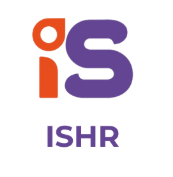Creating a resume that resonates with employers worldwide is no longer just about listing your skills and job titles. It’s about positioning yourself as the perfect fit for a global opportunity. With fierce competition and applicant tracking systems filtering most applications, it’s crucial to approach your resume as both a marketing document and a career asset. Whether you’re applying in North America, Europe, Asia, or remotely for an international company, this guide will help you stand out with practical strategies and proven career advice.
Career Advice: Understand Global Resume Standards
Before sending your resume across borders, understand that formatting expectations vary significantly around the world. For example, American resumes emphasize brevity and exclude personal details such as photos or birthdates due to anti-discrimination laws. On the other hand, European CVs often include this information as a norm. Employers in Germany, France, and parts of Asia might expect a more detailed CV, including personal interests or references.
To ensure your resume aligns with local customs, research resume conventions in your target region. If you’re applying through global platforms like LinkedIn or international job boards, stick to a clean, minimalist layout that adheres to global best practices. A one-size-fits-all approach doesn’t work; localized formatting shows cultural awareness and effort.
CV: Tailor Your Resume to the Job Application
Sending out a generic CV to multiple job postings is a common mistake. Customization is key to getting noticed. Employers want to know that you understand the role and that your experience is directly relevant. Use the job description as your blueprint—scan it for repeated terms, specific responsibilities, and required skills.
For instance, if the job emphasizes “cross-functional leadership” and “strategic planning,” reflect those phrases in your resume under relevant experience. Rewrite your professional summary to mirror the role’s language, and reorder bullet points so the most relevant achievements appear first. A tailored resume tells the recruiter, “I understand your needs, and I’m the solution.”

Global Job Market: Showcase International Competencies
To thrive in today’s global job market, you must present yourself as someone who can work effectively across cultures and borders. Recruiters look for signs that you’re adaptable, open-minded, and globally aware. This can be demonstrated in several ways.
If you’ve studied or worked abroad, be sure to include that experience prominently. Mention any roles where you collaborated with international teams or clients. Language skills are a big plus to highlight fluency or proficiency in foreign languages and any certifications you hold. Showcasing these competencies signals that you’re ready to contribute to a global workforce.
How to Write a Resume That Gets Noticed: Prioritize Design and Structure
Your resume needs to capture attention in under 10 seconds. A cluttered or confusing layout could be the reason you’re overlooked. Invest time in design—opt for a professional format that’s easy to navigate. Use bold headings, bullet points, and consistent font sizes to create visual hierarchy.
Avoid long paragraphs and dense blocks of text. Instead, use succinct bullet points that describe your achievements clearly. Each section—Experience, Education, Skills—should be easy to scan. Tools like Canva, Resume.io, or even simple Word templates can offer visually appealing formats that remain ATS-compliant. A well-organized CV reflects your attention to detail, a trait valued by employers across industries.
Job Application: Quantify Achievements for Impact
Listing responsibilities is not enough. Global employers want to see the value you brought to previous roles. Whenever possible, use numbers to make your achievements tangible. For example:
- Boosted online engagement by 60% through targeted campaigns.
- Managed $1.5M in annual client accounts across three regions.
- Trained and onboarded 50+ new employees globally.
These metrics create a compelling narrative of your impact and give hiring managers a reason to trust in your capabilities. Data-backed accomplishments stand out, especially when compared to generic statements like responsible for marketing activities.
Job Search: Optimize for Keywords and ATS
Most resumes today are first reviewed by Applicant Tracking Systems (ATS), not humans. These systems scan your resume for relevant keywords and rank it based on compatibility with the job description. Failing to optimize for ATS can result in your application being filtered out before it’s ever seen.
To avoid this, incorporate keywords from the job posting naturally throughout your resume. This includes your professional summary, job titles, and skills section. Avoid complex formatting (like tables or graphics) that ATS can’t parse, and always submit your resume in the format requested, usually PDF or Word. Proper optimization is an essential part of your modern job search strategy.
Keep It Updated: Review, Revise, and Refine
A resume should be a living document. As your career progresses, so should your CV. Make it a habit to update your resume every few months with new roles, certifications, skills, or notable projects. When you keep it current, you’ll always be prepared for new opportunities that arise unexpectedly.
Don’t overlook proofreading. Typos and formatting errors can make you appear careless. Use proofreading tools and, if possible, ask a trusted friend or mentor to review your resume. A fresh pair of eyes often spots issues you may miss. Maintaining a polished and updated resume signals professionalism and readiness.
Conclusion: Stand Out in the Global Job Market
In an interconnected world, the ability to position yourself for success beyond local borders is a major asset. Knowing how to write a resume that gets noticed is about more than just good grammar and formatting it’s about strategically presenting yourself in a way that aligns with international expectations while emphasizing your unique strengths.
By tailoring your content, showcasing international experience, using measurable results, and optimizing for keywords, you position yourself as a top candidate, whether the job is in Berlin, Boston, or Bangalore. Follow the above career advice, and you’ll be well on your way to landing your next global opportunity.
